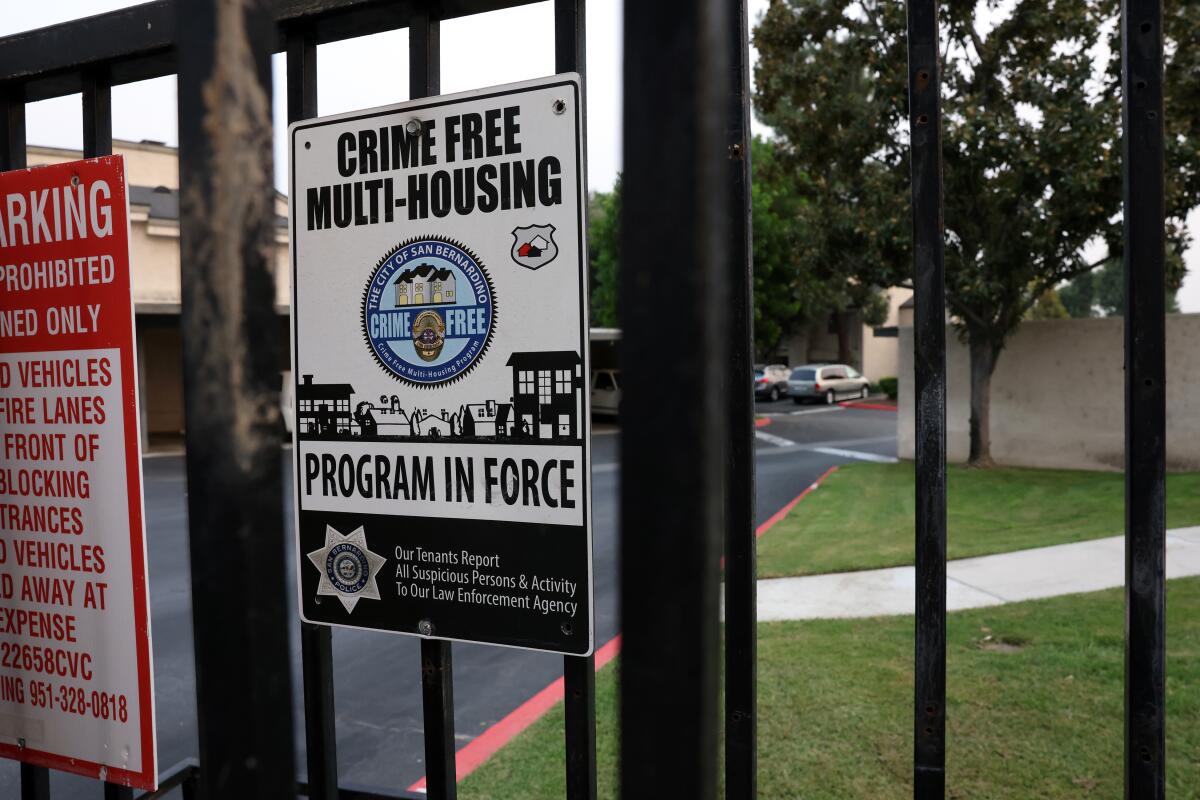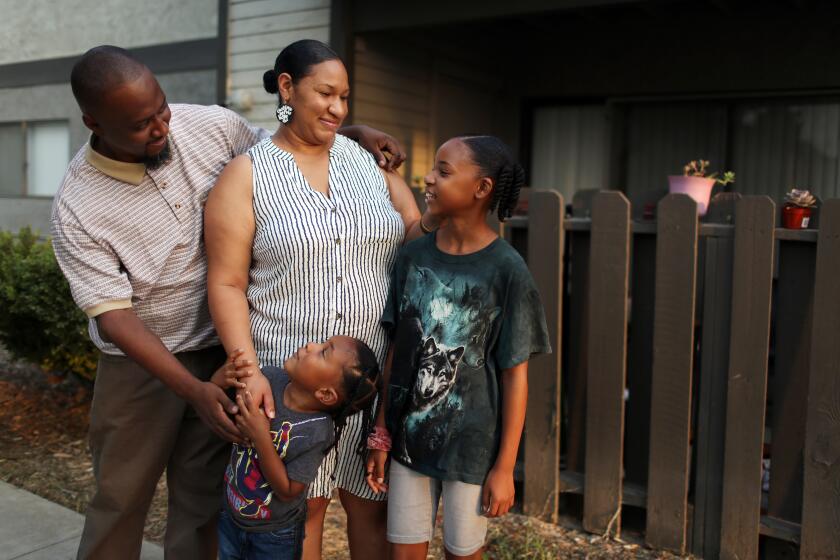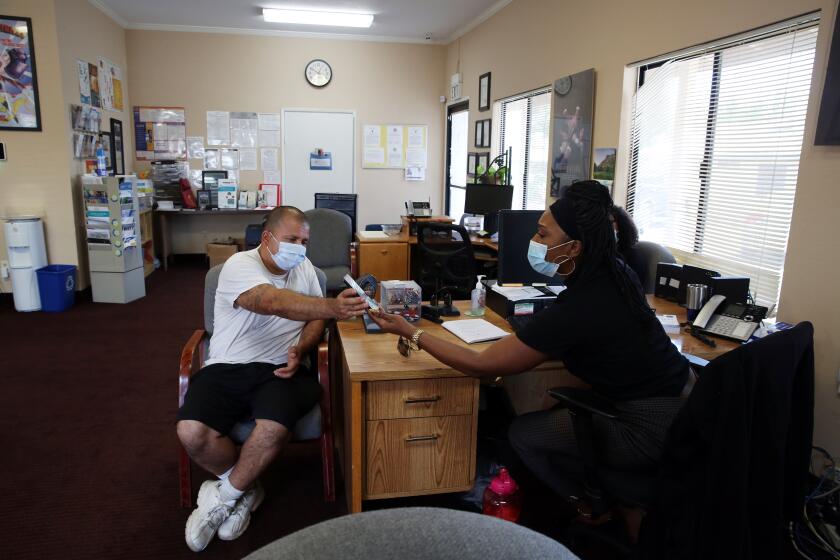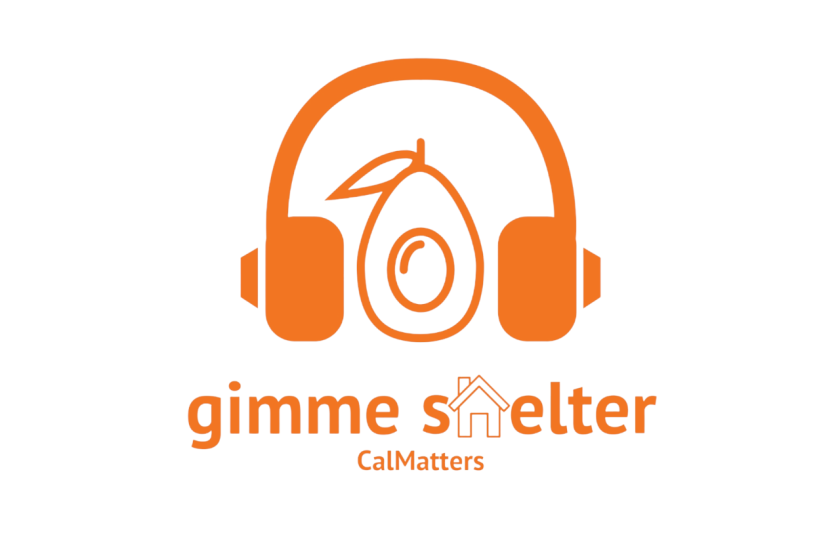Mandatory evictions for arrested tenants would be banned under new state bill

- Share via
California tenants and their families would no longer face mandatory eviction or exclusion based on their criminal histories or brushes with law enforcement under new legislation introduced Friday.
Assembly Bill 1418 takes aim at local policies known as “crime-free housing,” which can force landlords to evict tenants accused of breaking the law or refuse to rent to those with prior criminal convictions.
The rules make it harder for renters, especially Black and Latino tenants, to find and remain in affordable housing, said Assemblymember Tina McKinnor (D-Inglewood), the bill’s author.
“It’s systemic racism,” McKinnor said. “It’s a way to exclude brown and Black people from living in their apartment buildings, living in their communities.”
McKinnor drew inspiration for the bill from a 2020 Times investigation, which found that crime-free housing policies have disproportionately affected Black and Latino residents in California.
The Times determined that at least 147 cities and counties in California have enacted a crime-free housing law or advertise crime-free housing training for landlords — more than a quarter of all the local governments in the state — and that they were especially prevalent in communities with growing Black and Latino populations.
Nearly 2,000 communities in the U.S. and elsewhere encourage landlords to evict or exclude tenants who have had some interaction with law enforcement.
Cities frequently have used the specter of rising crime rates as reason to pass the rules. But in some communities, crime was stable or falling when the policies were approved, The Times found, and what was increasing was the number of Black or Latino residents.
Such was the case in Hesperia, a Mojave Desert community of about 100,000 that has seen an influx of Black and Latino renters. In 2015, the city passed rules that required landlords to evict those who police had suspected were involved in criminal activity at or near the property — regardless of whether the allegations had resulted in an arrest, charges or conviction.
In a City Council meeting, a council member described the purpose of the crime-free housing rules as “to correct a demographical problem with people that are committing crimes in this community.” An investigation by the Department of Housing and Urban Development found that Black renters were almost four times more likely, and Latino renters were 29% more likely, to be evicted under Hesperia’s program than white renters.
Hesperia and the San Bernardino County Sheriff’s Department recently agreed to a nearly $1-million settlement with the Department of Justice over claims the crime-free housing policy violated federal civil rights laws. It was the first case where federal prosecutors challenged a city’s crime-free housing ordinance nationwide.
Hesperia and San Bernardino County Sheriff’s Department will pay $1 million to settle a suit alleging discrimination against Black, Latino tenants.
Despite concerns about racial bias, crime-free housing rules often draw strong support from police, prosecutors and politicians who contend that they help keep neighborhoods safe, especially in areas with drug and gang problems. The policies vary widely from those that provide police training for landlords on criminal background checks and anticrime lease provisions to stricter measures such as Hesperia’s.
AB 1418 would ban cities from passing the most harsh crime-free housing policies. Under the proposal, cities could not require landlords to use criminal background checks to screen tenants, evict tenants for alleged criminal behavior without a felony conviction or evict an entire household when one member is convicted of a felony, among other prohibitions.
Crime-free housing policies that are voluntary for landlords would be allowed to continue. And landlords on their own accord could continue to screen and exclude tenants based on their criminal histories unless local rules prohibit it, such as in Alameda County.
Backers of AB 1418 say that their intention is to bar specific crime-free housing rules that they believe are the most discriminatory and ensnare those who have not committed any crime or nuisance.
“It identifies the most common provisions and it prohibits them one by one,” said Marcos Segura, a staff attorney with the National Housing Law Project, which is one of the principal supporters of the legislation.
The Times’ Liam Dillon and CalMatters housing reporter Manuela Tobias chat about the latest developments in California housing policy and interview key newsmakers and other reporters. Available on Apple, SoundCloud, Spotify, Google and Stitcher podcasts.
To become law, AB 1418 would need to pass both houses of the Legislature and be signed by Gov. Gavin Newsom. Should it be approved, communities with existing crime-free housing policies would be given a year to repeal them before they’re deemed out of compliance.
Times staff writer Ben Poston contributed to this report.
More to Read
Sign up for Essential California
The most important California stories and recommendations in your inbox every morning.
You may occasionally receive promotional content from the Los Angeles Times.










